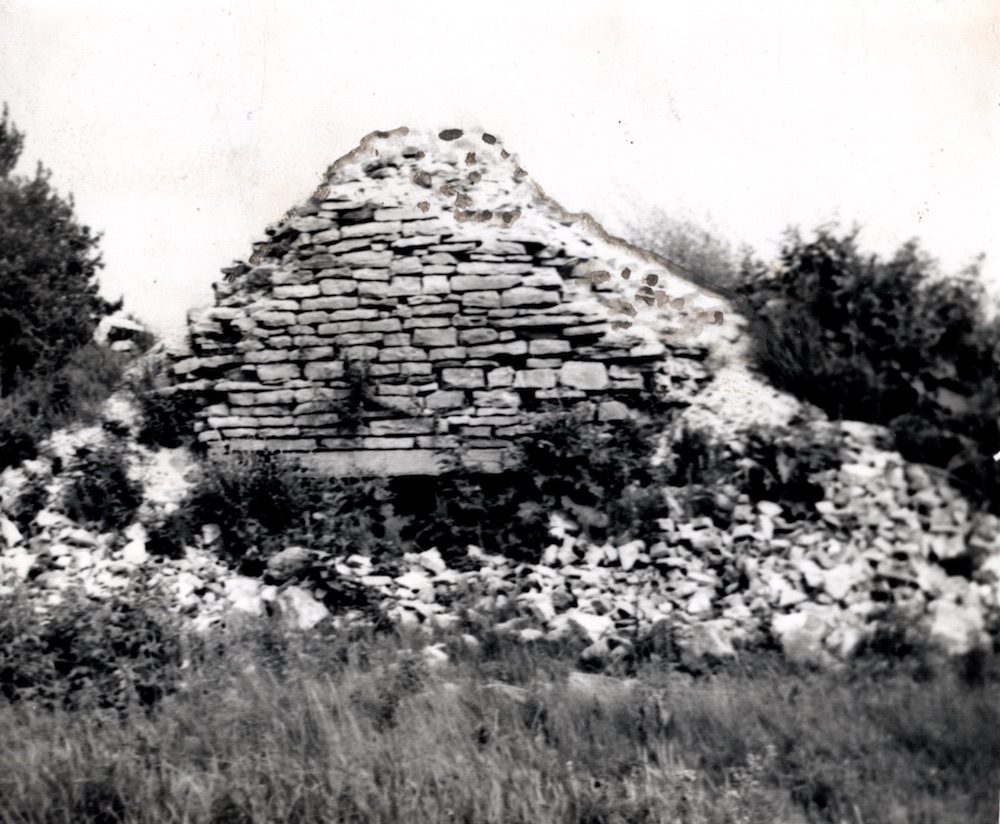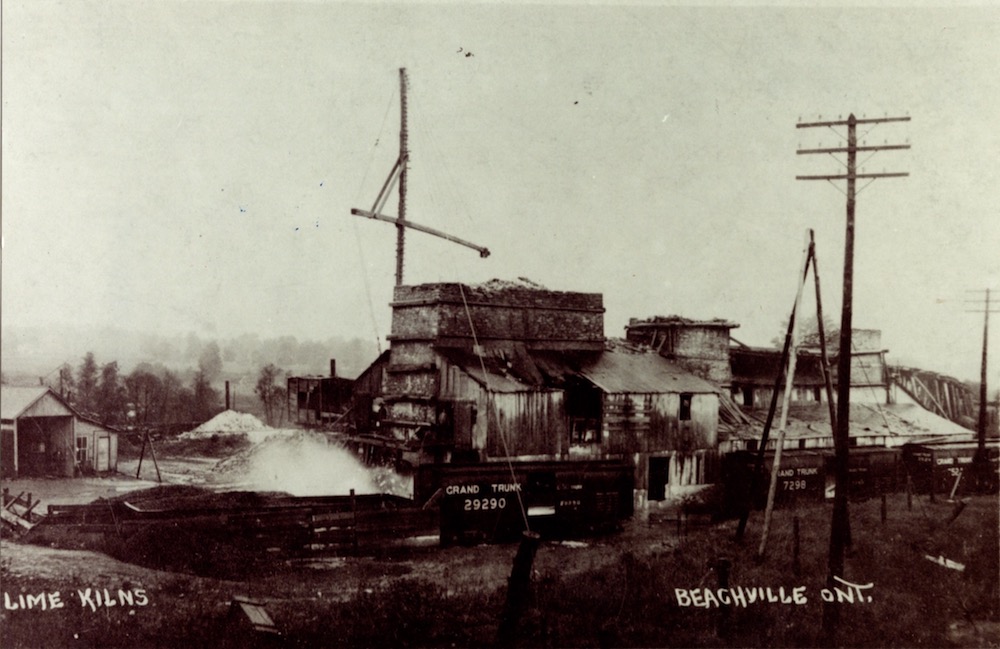Burning a Forest Along a River of Stone
Easy Access
While limestone deposits extend deep into the earth around Beachville, the resource was first discovered close to the surface.
Around 1800, early settlers discovered by accident that limestone existed in this area. As they cleared the land, they burned the brush causing the rock underneath to break from the heat. Through continued fires, this rock would crumble and the settlers came to find that it could be mixed with water to fill the gaps between the logs in their cabins.
– The Lime Quarries: Oxford’s Oldest Industry
Early builders had full forests to source wood for framing homes, and early masons could find fieldstone at any newly cultivated farmland for their projects. Similarly, supplies of limestone were easy to access in the early 1800s.
In the valley, the Thames River did the difficult work of loosening and exposing stones at the shoreline. Its current washed away topsoil and sand that would obstruct the stone. Fragments were manually dislodged using picks, sledgehammers and crowbars. Collecting stone in the summer was especially easy when water levels were low.
Fires and Kilns
Eventually, more experienced lime burners settled in the Beachville area. Immigrants arriving from the “old world” were more deliberate in their approaches to burning because of their experience working at kilns.
Kilns were purpose-built ovens and were more efficient at producing lime powder than open heaps of brush. Early set kilns were small structures made of stone and lined with brick. Strategically built along the course of the river, they were fed with a continuous stream of stone using buckets and wagons. Local lime burners supervised the stone as it steadily baked at high temperatures. When naval officer Captain Philip Graham visited Beachville in 1833, he noted that many of the area’s trees were being cut down to fuel these fires. As the middle of the century neared, more workers were recruited into the lime business. Men of other professions were hired part-time or seasonally to cut down cords of wood, haul stone to the kilns or supervise and stoke the fires.



